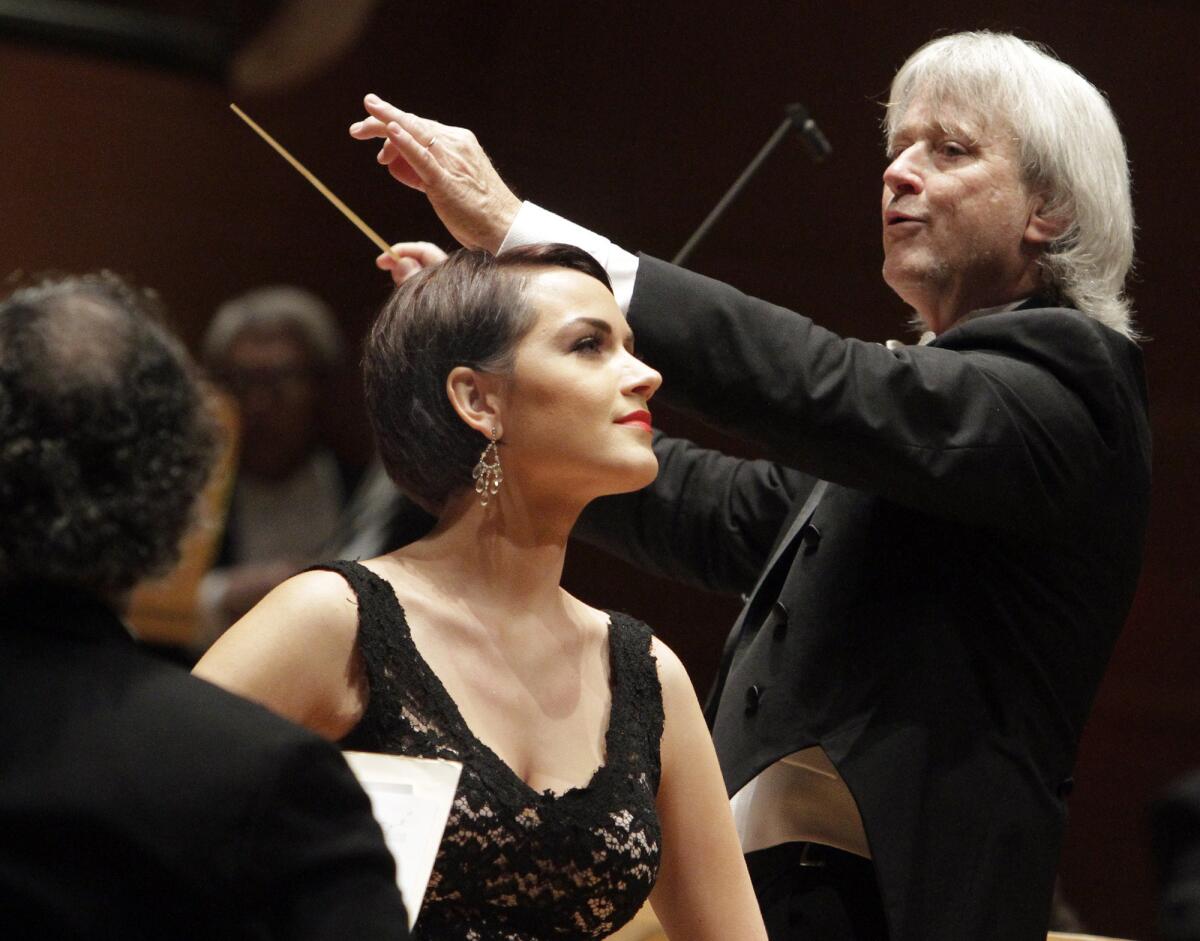Review: Pacific Symphony takes on film composers’ concert works

- Share via
The Pacific Symphony’s annual American Composers Festival wheeled around to the subject of film composers Thursday night -- as it did in 2009.
This time, instead of juxtaposing film and concert music by composers past and present, the concert stuck to new and recent concert works by what a press release described as “four of today’s biggest Hollywood heavy hitters.”
The defenders of film composers manned their battle stations, trotting out the old complaint that there is a prejudice against composers who work in Hollywood. Forget about that. The relevant question is whether these concert works are any good, regardless of who wrote them and where they earn their livings.
The four pieces by John Williams, Howard Shore, James Horner and Elliot Goldenthal (the only one of the four who was present) certainly had an enthusiastic and excitable advocate in conductor Carl St.Clair, who invested as much passion in these scores as he might for a Beethoven or Mahler symphony. And it was useful to hear how these composers used their freedom from the demands of directors and scripts to create music more or less on their own terms.
For this listener, the most interesting piece of the four was Williams’ “Tributes! For Seiji” -- “Seiji” being the then-Boston Symphony conductor Seiji Ozawa who was also a St.Clair mentor. Writing in a sophisticated, varied, abstract, orchestrally resourceful language far removed from his most famous music for the cinema, Williams topped the piece off with a number of false endings before finally slamming the door shut.
Shore’s “Mythic Gardens for Cello and Orchestra” (a West Coast premiere) was mostly a continuous lyrical song for cello -- ardently surveyed by cellist Sophie Shao -- rambling pleasantly along until the third movement where at last there was some dialogue with the orchestra. It’s listenable, yet it evaporated from memory within minutes.
In his program note, Horner seems most relieved to be free of the restrictions of film. Yet in “Flight,” a tribute to his hobby, Horner rehashes a compendium of filmdom’s clichés – the rat-a-tat-tat of the snare drum, the ting of the glockenspiel, the soaring title-music theme repeated to death. Tellingly, this piece got a bigger ovation than those by Williams and Shore.
For Goldenthal, this was a long-delayed return visit, having previously written for the Pacific Symphony a massive, 65-minute, politically-charged oratorio on Vietnam, “Fire Water Paper,” in 1995. Here, the stakes were more modest -- the first performance of a new, two-movement, 23-minute symphony in the remote key of G-sharp minor.
The morose, somber first movement and a good deal of the more agitated second movement tended to drift -- like much of “Fire Water Paper.” But Goldenthal saved his showmanship for the end, where wild percussion broke out from all around the Renée and Henry Segerstrom Concert Hall as the onstage instruments screamed. This didn’t pull the symphony together, but it made a bracingly reverberating closing noise.
Carl St.Clair and the Pacific Symphony, Renée and Henry Segerstrom Concert Hall; 600 Town Center Drive, Costa Mesa; 8 p.m. Saturday; $25-$185; (714) 556-5799 or www.pacificsymphony.org
More to Read
The biggest entertainment stories
Get our big stories about Hollywood, film, television, music, arts, culture and more right in your inbox as soon as they publish.
You may occasionally receive promotional content from the Los Angeles Times.










